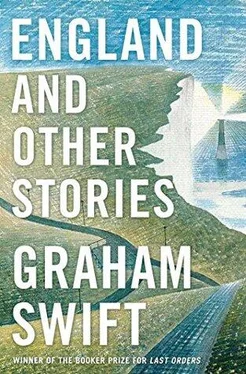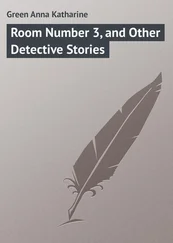But it was she who had to face the less obvious truth that, yes, she really was washing away another man’s smell, and that other man was Albert.
‘There’s your shirt, Albert. All clean. Now, wear it. Please. Wear it for me.’
She foolishly imagined, only extending her delusions, that once he wore it, that would do the trick. It would mean, of course, having to remove his uniform. He didn’t seem to want to remove it, it was like his skin. It would mean having to have a good scrub in the tub. And among her many anticipations had been seeing herself assist him in doing just that.
What she really meant by ‘wear your shirt’ was make love. She didn’t have the way to say it directly, but might he not see that it was what she meant? Might he not see that ‘wear your shirt for me, Albert’ actually meant don’t wear it — yet. She would have gladly washed it for him anyway, having explained to him first those reasons — as if they were needed — and having, first of all. .
If she could only get round now to saying that she’d gone to bed with it, she’d worn it in bed — wasn’t it obvious? — then wouldn’t the other thing follow? And she didn’t really mind, now, how it was done — gently, roughly, fumblingly, slowly, all too rushed and quickly. So long as.
But he stared at the clean shirt she held out to him and all that happened (though it was something) was that his anger seemed to leave him, even turn for a while into something like its opposite, into complete bewilderment, even panic, as if she were offering him something terrible. A white shirt, he was staring at a white shirt.
‘Please, Albert.’ What could she do that wasn’t wrong?
If he were to wear it, if they were to be to each other like man and wife. It was all ifs. It took nearly a week before he wore the shirt. As for the other thing, as for her own desires, she understood that what Duncan, her second husband, would one day call her ‘appetites’ had not only been thwarted, but neutralised, chilled.
How could she do it with Albert if Albert wasn’t Albert?
‘You have appetites, Lily.’ So Duncan had said, barely a fortnight before the Armistice. She couldn’t tell if he was confused or impressed. For all his fine words, he was just a boy, like Albert.
It took nearly a week before he wore the shirt, including the days when he had to report to the MO. If that’s what he did. Need it have taken so much time? Had he invented the MO just so, when he’d hardly got home, he could disappear every other day? How absurd, how humiliating — and somehow just as agonising — having waited for him all those months, to have to wait for him now to come home on a train from Paddington. Or wherever. Would he come home at all?
‘Hello, Albert.’
‘Hello, Lily. Can I come in?’
What was happening? He’d be in his uniform again, for the MO presumably. She had the first flicker of the thought that she wanted him back where he’d come from. Not Paddington, or wherever. Where he’d come from. Did he see it in her face?
‘I want you to wear your shirt, Albert.’
She didn’t give up. She had a plan. If he’d made her do what she’d done, then she’d make him do this, if it was the last thing she’d ask of him.
‘Listen, Albert, listen. I want you to wear your shirt. I want you to wear your shirt and to go with me this Sunday to Marlow. The weather will be fine. I want you to take me out on a boat on the river. Remember?’
To her surprise (she was ready for more coaxing) he said, ‘All right, Lil.’
‘Lil’. Was it something the MO had said?
He wore the shirt. He submitted. He became so woodenly docile that this, too, alarmed her. It was tit for tat, it was his punishment? But it was hardly that, an outing on the river. He was preparing to say he was sorry? I’m sorry, Lil, I’m so sorry for everything — his eyes, Albert’s pale brown eyes, trying to express the measure of what he was sorry for.
Or it was nothing of the sort, and he knew better? Yes, if she wanted, yes, if it meant so much to her. Yes, he’d fit into this foolish picture of hers. At least he didn’t explode and say: So this is what she’d done all this while, gone to Marlow, on the river, with other men.
They went to Marlow. They took the train. They changed at Maidenhead. She didn’t know if he still kept in his head the timetables he’d once so diligently kept there. Cookham, Bourne End. . She didn’t know any more what he had in his head. He was wearing the shirt. She was wearing her long narrow skirt and carrying the little parasol that had once been her grandmother’s.
When one day she was a grandmother herself she’d find it impossible to explain to her teenage granddaughters, who wore next to nothing, that she’d once thought it the height of sexiness (though the word hadn’t existed) to loll back in a creaking boat, water lapping at its undersides, in a long white skirt, twirling a parasol, while a man — but the man was Albert — removed his jacket, rolled up his white sleeves and rowed you rhythmically upriver.
As impossible as to explain to them about Albert anyway, though that was her firm decision. Just the name and that he’d died in the war — the first one that is. She’d had this other husband once, before Grandpa Duncan. But what should they care? He hadn’t been their grandfather. Even her own daughters, Joyce and Margaret: he hadn’t been their father. No logic in saying that he might have been.
‘Albert,’ she would say, with a fragile smile. ‘He never liked to be called Bert.’
They took a boat. The water sparkled. Willows and swans. But she saw at once (if she didn’t know already), from the put-upon way he shoved off from the little jetty, that this journey by river was going nowhere, certainly not back into the past. He took it out on the oars, whatever it was he had in his head. He worked it out on the oars. She could loll and twiddle her parasol as much as she liked.
When they returned to the jetty she suddenly pictured Channel steamers, packed with reeking men. She hadn’t thought of it: a train, a boat. What could she do that wasn’t wrong? It was as if this brief Sunday excursion was like the whole brief non-event of his leave. An hour, two weeks, what was the difference? He wanted to go back. She saw this. Did he see her tears? He wanted to go back and be really dead.
His leave was actually truncated. Was it all his invention again, the invention of an invention? The doctor had said now, apparently, that his shell shock was all an act, he should snap out of it and return. But which was the act? He said, in a flat voice more appalling than rage, that there was nothing he could do about it. He’d been ‘found out’. Found out?
I’m Bert, Bert. .
And — this was the worst part — she was actually glad. Had it shown in her face, like that other flicker? Would it have mattered? They were both glad.
And there was another level to her gladness. His too? She was glad — no chance of it in those last few days — that they’d never conceived a child.
‘Goodbye then, Lily. I’ll be seeing you.’
‘Goodbye, Albert.’
There was only the shirt again, hanging in the wardrobe, smelling now of a sweat worked up on the River Thames. But it wasn’t Albert’s sweat. It had no magic. It was a general dreadful now commonly manufactured sweat and, yes, it was like an infectious disease, it was like the measles, she seemed to feel it spreading from the wardrobe all through the house. She couldn’t stand the thing hanging there like that. On the other hand, she wasn’t going to wash it. Not now.
It took a week, a week of contending with the shirt. It was like a miniature war. Then she could bear it no longer. She lit a fire — in June — and flung it on. She knew what she was doing. She didn’t thrust it into the kitchen stove. She wanted to watch it burn.
Читать дальше












